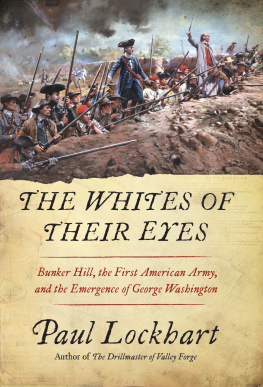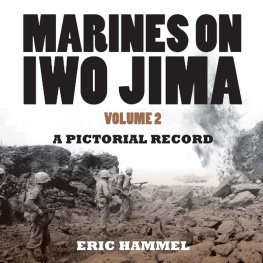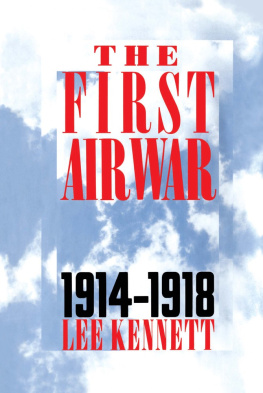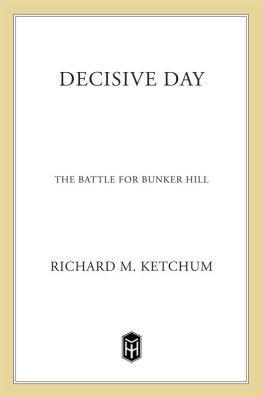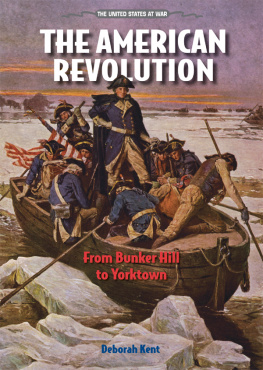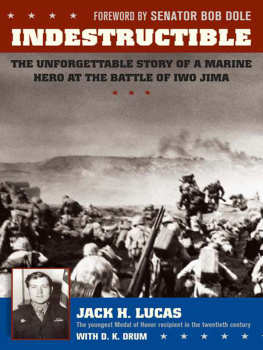Alexander Rose - Men of War: THE AMERICAN SOLDIER IN COMBAT AT BUNKER HILL, GETTYSBURG, AND IWO JIMA
Here you can read online Alexander Rose - Men of War: THE AMERICAN SOLDIER IN COMBAT AT BUNKER HILL, GETTYSBURG, AND IWO JIMA full text of the book (entire story) in english for free. Download pdf and epub, get meaning, cover and reviews about this ebook. year: 2015, publisher: Random House Publishing Group, genre: History. Description of the work, (preface) as well as reviews are available. Best literature library LitArk.com created for fans of good reading and offers a wide selection of genres:
Romance novel
Science fiction
Adventure
Detective
Science
History
Home and family
Prose
Art
Politics
Computer
Non-fiction
Religion
Business
Children
Humor
Choose a favorite category and find really read worthwhile books. Enjoy immersion in the world of imagination, feel the emotions of the characters or learn something new for yourself, make an fascinating discovery.

- Book:Men of War: THE AMERICAN SOLDIER IN COMBAT AT BUNKER HILL, GETTYSBURG, AND IWO JIMA
- Author:
- Publisher:Random House Publishing Group
- Genre:
- Year:2015
- Rating:4 / 5
- Favourites:Add to favourites
- Your mark:
- 80
- 1
- 2
- 3
- 4
- 5
Men of War: THE AMERICAN SOLDIER IN COMBAT AT BUNKER HILL, GETTYSBURG, AND IWO JIMA: summary, description and annotation
We offer to read an annotation, description, summary or preface (depends on what the author of the book "Men of War: THE AMERICAN SOLDIER IN COMBAT AT BUNKER HILL, GETTYSBURG, AND IWO JIMA" wrote himself). If you haven't found the necessary information about the book — write in the comments, we will try to find it.
Men of War: THE AMERICAN SOLDIER IN COMBAT AT BUNKER HILL, GETTYSBURG, AND IWO JIMA — read online for free the complete book (whole text) full work
Below is the text of the book, divided by pages. System saving the place of the last page read, allows you to conveniently read the book "Men of War: THE AMERICAN SOLDIER IN COMBAT AT BUNKER HILL, GETTYSBURG, AND IWO JIMA" online for free, without having to search again every time where you left off. Put a bookmark, and you can go to the page where you finished reading at any time.
Font size:
Interval:
Bookmark:
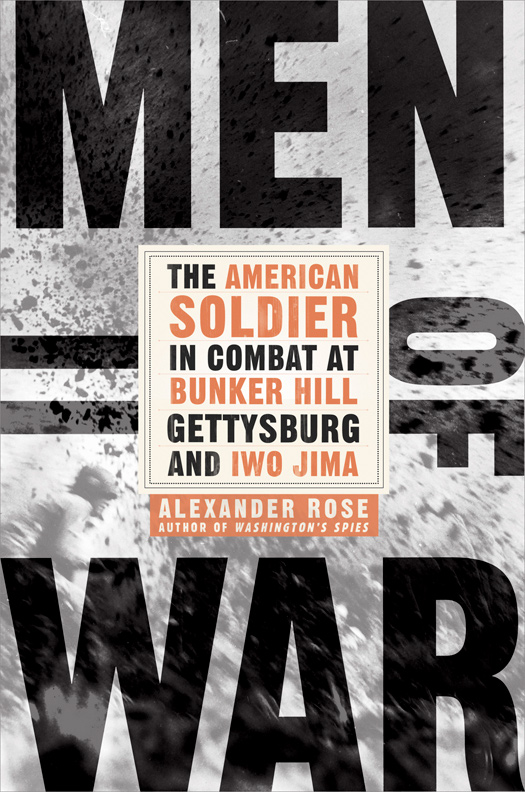
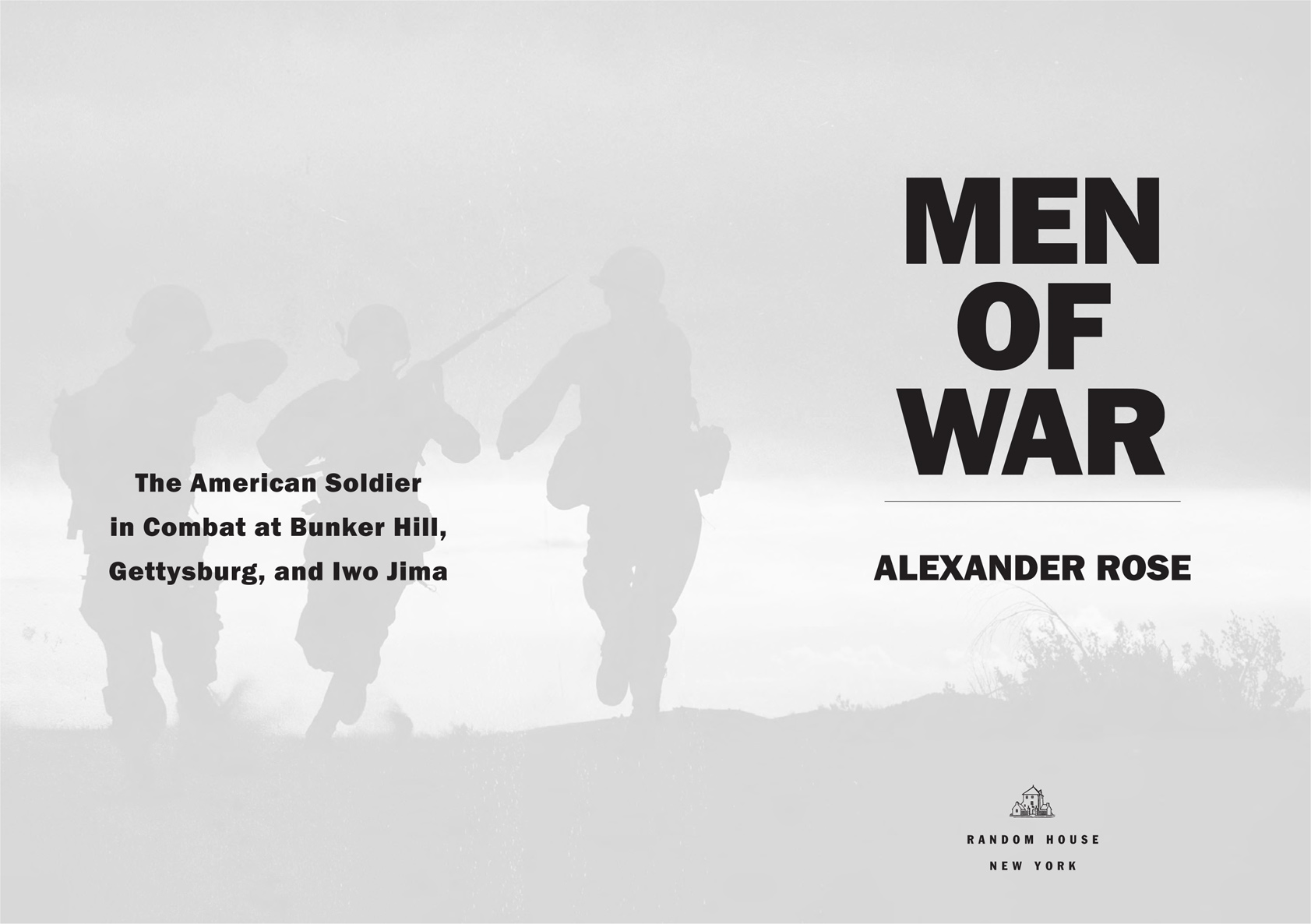

Copyright 2015 by Rosewriter, Inc.
Maps copyright 2015 by David Lindroth, Inc.
All rights reserved.
Published in the United States by Random House, an imprint and division of Penguin Random House LLC, New York.
R ANDOM H OUSE and the House colophon are registered trademarks of Penguin Random House LLC.
LIBRARY OF CONGRESS CATALOGING-IN-PUBLICATION DATA
Rose, Alexander.
Men of war: the American soldier in combat at Bunker Hill, Gettysburg, and Iwo Jima. / by Alexander Rose.
pages cm.
Includes bibliographical references.
ISBN 978-0-553-80518-5ISBN 978-0-8129-9686-9 (eBook)
1. BattlesUnited States. 2. CombatPsychological aspectsHistory. 3. SoldiersUnited StatesHistory. 4. United StatesHistory, MilitaryCase studies. I. Title.
E181.R77 2015
355.00973dc23
2014030958
www.atrandom.com
Cover design: Carlos Beltrn
Cover photo: National Archives
Title page image: iStock.com / LifeJourneys
Bunker Hill image: iStock.com / Duncan Walker
Gettysburg image: iStock.com / Constance McGuire
Iwo Jima photo by Lt. James T. Dockery, 4TH MAR. DIV.
v3.1_r1
To Rebecca, without whom this book could not
have been written, and to Edmund (aged five),
without whom it might have been written faster.
The Lord is a man of war.
Exodus 15:3
A single question lies at the heart of this book: Whats it like being in a battle?
Its one Ive been asking myself since I was an undergraduate, when I discovered, in the university bookstore, a copy of John Keegans The Face of Battle, a book published just a few years after I was born. I still have it, nearly a quarter of a century later. Cheaply bound and badly printed, the old paperback sits on a shelf in my study, but such are the times that I now also own a digital version that is duplicated on a variety of electronic devices as well as a Folio Society limited edition. I can legitimately say that, as priests and Puritans once did their Bibles, I carry my Keegan with me everywhere.
To those unfamiliar with The Face of Battle, let me explain. Keegan, who died in 2012, investigated the experience of the common British soldierwhat he felt, heard, and sawin three epic battles: Agincourt in 1415, Waterloo in 1815, and the Somme in 1916. Keegan also discussed the mechanics of fightingfor instance, the means by which King Henry Vs longbowmen demolished the French cavalryas well as the historiography of warfare (how we write about battles over time). His book can justly lay claim to being one of the finest works of history, military or otherwise, of the twentieth century.
Keegan was an inspiration to me as a historian, and The Face of Battle is the inspiration for this book. While Keegan restricted himself to English/British battles, I found that there was no American version based on American battles fought by American soldiers.
Writing one was easier said than done. The great majority of military books focus not on the combat experience of the regular soldier but on history from the birds-eye perspective. To which he did not feel the need to add, it was not the million men of the Grande Arme that shook Europe, but myself.
Consequently, innumerable volumes have been written about the generalship of various commanders, their leadership skills, and how they won (or lost) their battles at the operational level, but relatively few about the lowly soldiers who served under them. Bertolt Brecht, the German playwright, alluded to this curious blind spot when he askedcontra Napoleon:
The young Alexander conquered India.
Was he alone?
Caesar beat the Gauls.
Did he not have even a cook with him?
Philip of Spain wept when his armada
Went down. Was he the only one to weep?
Frederick [the Great] won the Seven Years War. Who
Else won it?
To be sure, commanders are important in their own right, but I was more intrigued by the overlooked and the ordinary, the men whose names are catalogued in muster rolls and inscribed on gravestones, the men who are otherwise forgotten. We know what the general on his horse thought, but what of the corporal and private at the sharp end?
Unlike that Russian novelist, who served in the artillery during the Crimean War, I could not seek answers within the realm of my own experience. I have never heard a shot fired in anger. Like Keegan, I am not a flesh-witness to war.
Instead, Ifollowing Keegans leadexploited my status as an impartial observer to listen to, read about, and report on what veterans thought, felt, and did. There is a surprisingly large trove of raw information available if one, say, excavates the now-forgotten volumes of regimental histories published after the Civil War. These books were written by soldiers for soldiers and in them they speak with surprising frankness of their shared experiences. Then there is the Niagara of letters, memoirs, diaries, interviews, and newspaper accounts of various soldiers over the centuries; these often contain the unvarnished sentiments of vanished ages.
Selecting three properly representative battles from the legions of firsthand sources available was critical. So allow me to explain the thinking behind my decisions to include Bunker Hill in 1775, Gettysburg in 1863, and Iwo Jima in 1945. First, this trio is not supposed to represent necessarily the most important clashes; none of them, for example, were, to use a dated Victorian expression, decisive battles.ences of a Marine at Iwo Jima are generally applicable to, or illustrative of, those of comrades fighting on other islands. In some respects, the battles, I guess you could say, dont matter that much. I felt that Bunker Hill, Gettysburg, and Iwo Jima presented fascinating case studies of combat up close, and the fact that copious primary and secondary resources were available for each clash was an additional, and most valuable, advantage.
Certainly, a few other factors swung the final decisions one way or another. For instance, I weighted the scale in favor of actions that involved American troops within a limited area in order to exclude the additional complications engendered by the presence of allies and the sister arms of land forces. Thus, Yorktown in 1783 was rejected owing to the significant contribution of the French navy to victory over the British. This is not to diminish French valor or to bang the jingoistic drum, but Men of War is a book about American soldiers. From this perspective, then, Bunker Hill seems more optimal: It took place on a small peninsula, lasted less than a day, and involved only American militiamen and British regulars; furthermore, naval participation was peripheral. Additionally, I attempt to remain as close to the killing ground as possible. Hence, for Gettysburg I devote little space to the cavalry actions since the overwhelming brunt of combat fell on the poor bloody infantry, and in the Iwo Jima chapter you will look in vain for material on airpower, important as it was.
You may notice, as well, that by starting with the Revolutionary War and jumping to the Civil War and thence to World War II, Ive omitted several rather major conflicts: the War of 1812, for example, and World War I. But this is neither an exhaustive history of American warfare nor a general overview of U.S. military history.
Font size:
Interval:
Bookmark:
Similar books «Men of War: THE AMERICAN SOLDIER IN COMBAT AT BUNKER HILL, GETTYSBURG, AND IWO JIMA»
Look at similar books to Men of War: THE AMERICAN SOLDIER IN COMBAT AT BUNKER HILL, GETTYSBURG, AND IWO JIMA. We have selected literature similar in name and meaning in the hope of providing readers with more options to find new, interesting, not yet read works.
Discussion, reviews of the book Men of War: THE AMERICAN SOLDIER IN COMBAT AT BUNKER HILL, GETTYSBURG, AND IWO JIMA and just readers' own opinions. Leave your comments, write what you think about the work, its meaning or the main characters. Specify what exactly you liked and what you didn't like, and why you think so.


